Texts You Didn’t Send Your Ex: Analyzed
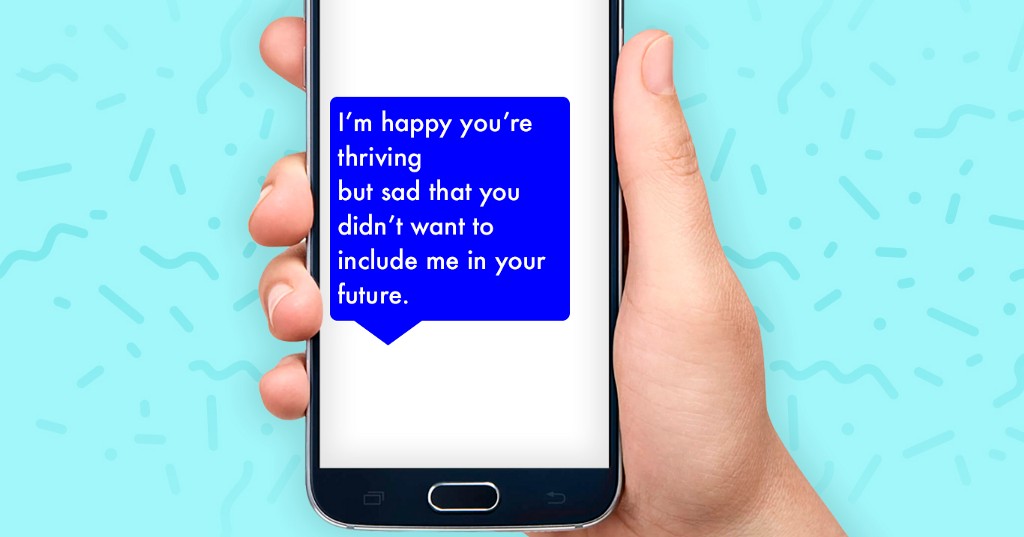
Let’s look at the sad, angry data.
On Valentine’s Day, my friend Sean Peter Drohan started a Google spreadsheet where he encouraged people to fill in the texts they wanted to send their exes. Under the cover of anonymity, a social community was born. People bared their souls — playfully and poetically.
Next to the column where users entered the text they wished they could send, people added their reactions.
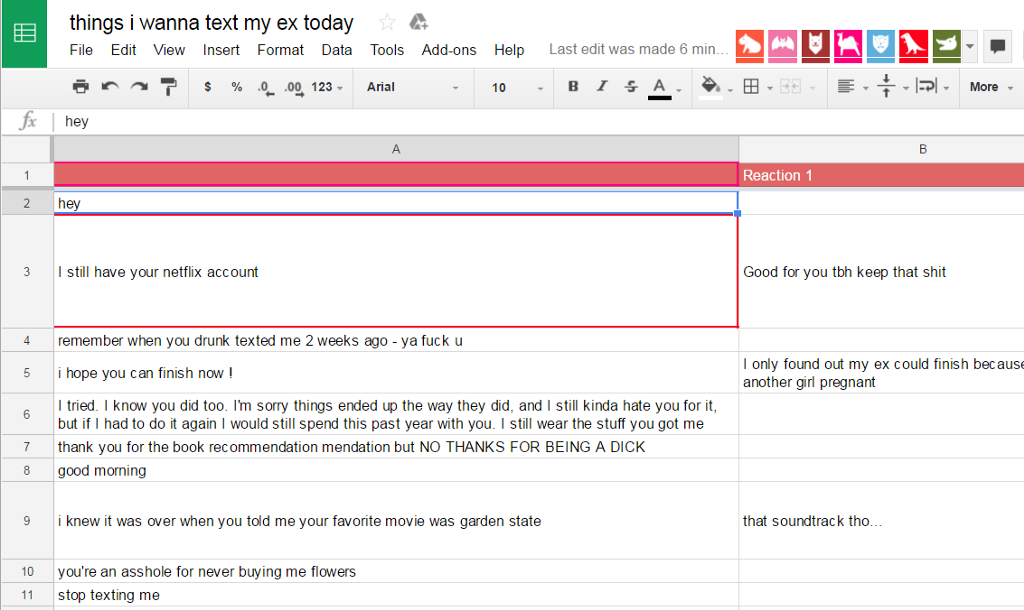
Since posting, the spreadsheet has accuumlated 2,370 unsent “texts.” I was intrigued by the curious little data set that had been aggregated: thousands of texts that a group of people want to send their former lovers, but never will. So I analyzed them.
Here, as of 5pm CST on February 21, 2017 are the results of my analysis.
1. “You” and “I” were the most-used words.
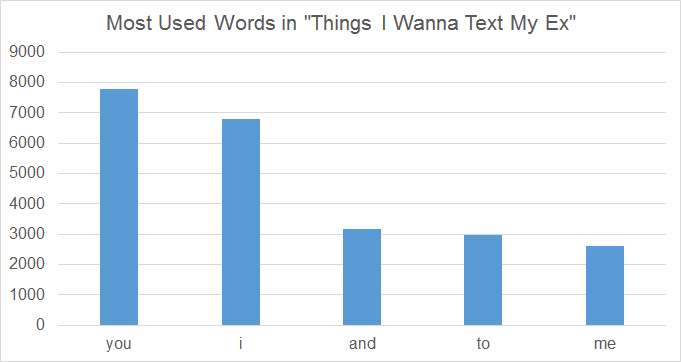
There’s something tragically beautiful and sad about the fact that “you” and “I” appear next to each other in the data set. Interestingly, my Text Analyzer data revealed “you” appeared 14.5% more frequently than “I,” suggesting our broken hearts are more likely to refer to our ex than to ourselves in the texts.
2. The language was most likely to be sad, angry and tentative.
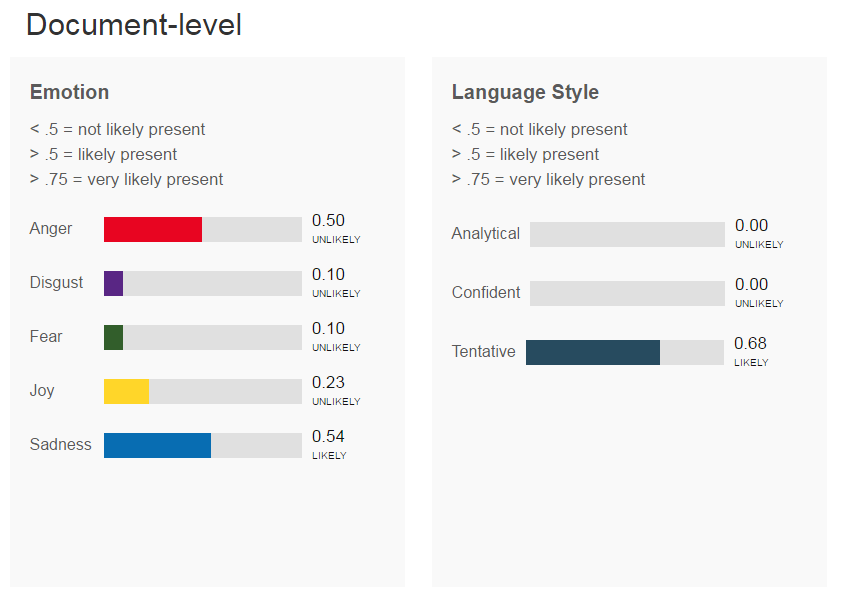
Using a linguistic analysis tool built on the IBM Watson Developer Cloud, I analyzed the first 300 texts to detect the dominant emotions, language styles and social tendencies. While the tool is meant to analyze text from a single author, and emotion and sentiment analysis is still a growing discipline, there’s still some insight here.
The aggregated texts evidenced a 54% chance of demonstrating sadness and a 50% change of anger. Disgust and fear were the emotions least likely to make an appearance.
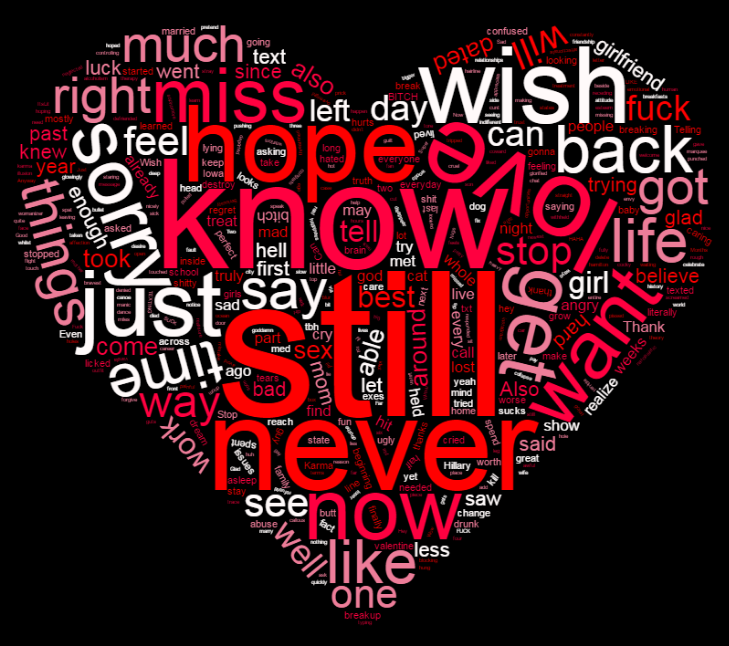
My linguistic analysis revealed cause for hope, though: It revealed a 23% chance of joy popping up, with some of the texts revealing happiness since the break-up.
There was a 68% likelihood of the author expressing tentativeness, and a 0% likelihood of confidence or an analytical tendency.
What all this boils down to: In our texts to our exes, we’re likely speaking from the heart rather than our heads.
3. “I miss you” was the most-used three-word phrase.
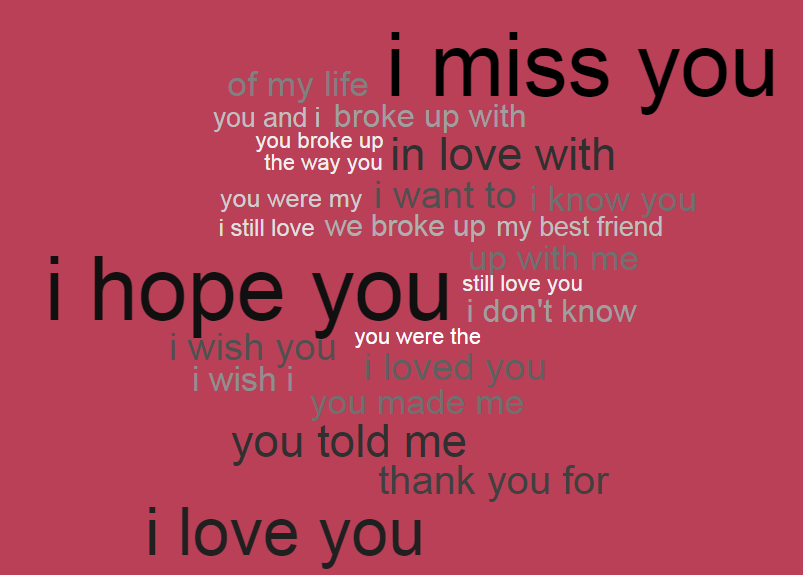
On Valentine’s Day, the three words you want to hear are “I love you.” But in our ex-texts, “I miss you” was the most popular three-word phrase, followed closely by “I hope you.” “I love you” takes home the bronze in third place.
3. 10% of texts including a variation of “I love you,” but only 1/3 of them were in the past tense.
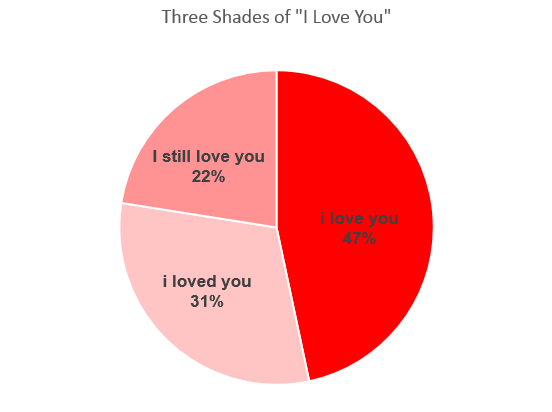
240 of the texts addressed love head on, but only 31% of them used the past tense “loved.” While it’s not possible to know how recent the heartbreak is in the spreadsheet, it’s clear that 54 of them are listening to Whitney Houston (“IIIIIIIIIIeI will always love you”).
Final thoughts
Analyzing these texts was heartbreakting, but it did give me hope. Often, the anonymity of the internet encourages people to be hateful, judging and trolling one another. I think this spreadsheet is one way to use that anonymity for good.
Add your text to the spreadsheet to help build out the data set.
Also, screw the exes.
